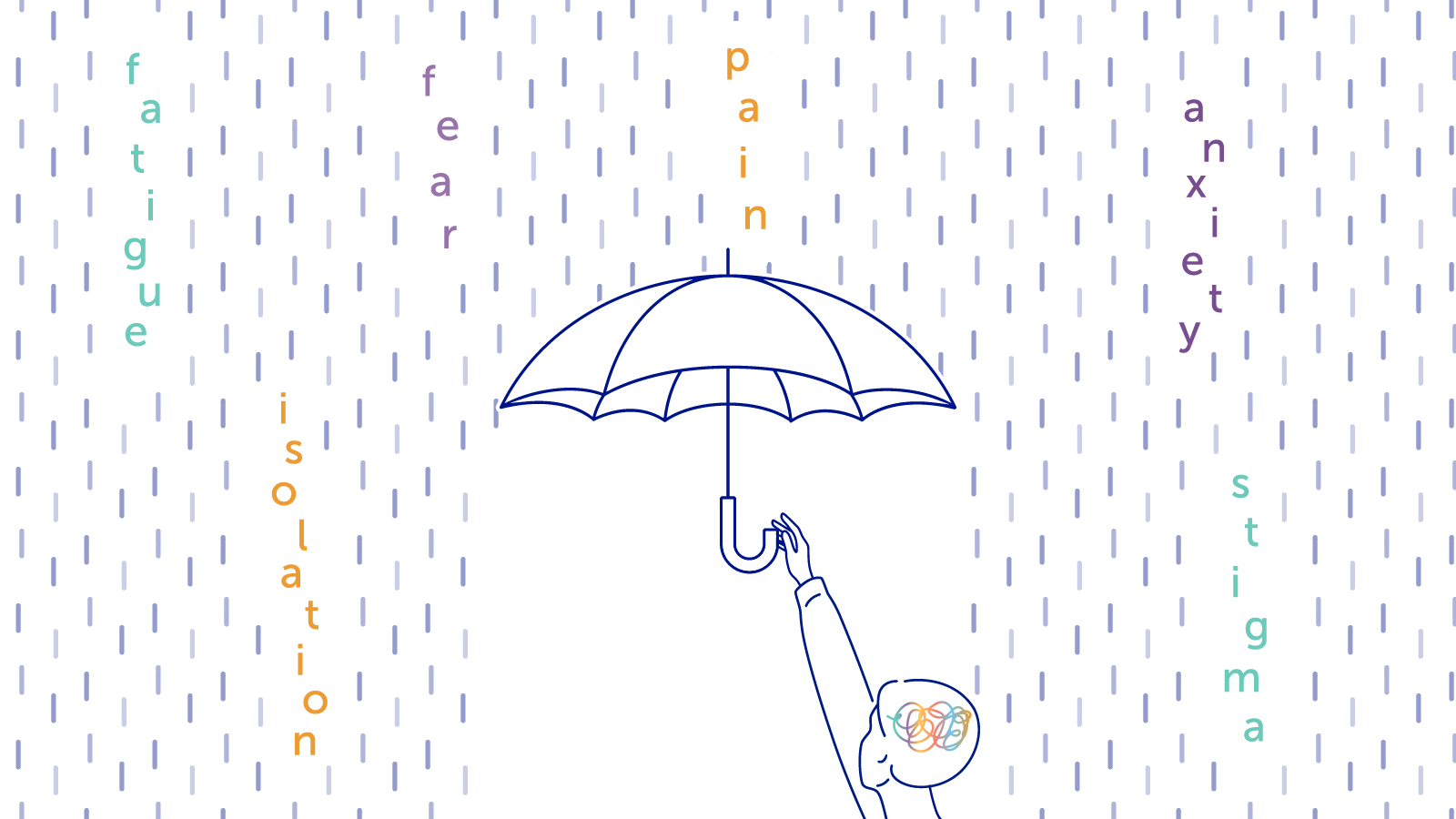
For UCB, this year is the culmination of years of work on a portfolio of medicines tailor-made to serve unmet patient needs, as we listened to and partnered with the people impacted by the diseases we treat. Our current and future portfolio draws on our deep scientific expertise and understanding of disease biology, and our legacy of deeply understanding unmet patient needs.
For those of us at UCB, in addition to growing our portfolio of medicines in the U.S., the person, not just the disease, is at the heart of all we do, and we aim to address needs in ways that go beyond just medicine.
As an illustration of this care, UCB has partnered with patients to understand the moments that matter most in their lives, and recently hosted a patient and caregiver panel to understand the impact on mental health for those living with or caring for someone with a severe disease. The topic of mental health conditions – broadly defined by feelings such as fatigue, stress, anxiety, stigma, and fear – was explored across therapeutic areas because these conditions are often a common comorbidity or topic for people living with a severe disease.
The Impact on Mental Health
Jasmine, who lives with hidradenitis suppurativa (HS) explained, “Specifically for the HS community, there's a lot of pain that's involved with dealing with our condition from day to day and constant inflammation. Our bodies impact how our mental health functions because our bodies are literally fighting ourselves.”
In other severe or rare diseases, the trend is the same. For instance:
- Psoriasis can negatively affect a person’s mental and social well-being. Over 80% of people with psoriasis report feeling embarrassed or depressed because of their skin.
- Caregivers of those living with and caring for someone with a rare epilepsy syndrome report higher instances of stress, anxiety, and trouble sleeping.2
- People living with myasthenia gravis (MG), a rare neuromuscular condition, can lead to feelings of anxiety, frustration, guilt, anger, loneliness, and depression. These feelings may be driven by multiple factors, from the burden of MG symptoms themselves to social isolation, loss of control, and a lack of support.3
Alexis, living with MG and the founder of a large patient support group, shared that “We have countless examples of people that have gone to the hospital, because they either have severe exacerbation of their symptoms or are close to a crisis. And they end up in the psychiatric ward because the medical community is not aware that there is such a thing called myasthenia gravis. It's just so much easier to just say you're just crazy, you need psychiatric help, or you're just plain lazy.”
How UCB Supports Mental Health
As an output of the patient and caregiver panel on mental health, UCB is amplifying these patient and caregiver voices to emphasize that “My Mental Health Matters.” We aim to better understand the patient and caregiver perspective and bring awareness to the toll that severe diseases take on the whole person and those around them.
Some of the ways UCB is working with physicians and the patient community to elevate the conversation around mental health include:
- Building digital tools that enable shared decision-making, which may allow a physician and a patient to collaborate on their treatment plan and the patient’s preferences and goals;
- Providing grants to non-profit and non-governmental organizations dedicated to improving the physical, social, and psychological well-being of young people with mental disorders through the UCB Community Health Fund; and
- Creating a supportive toolkit and program for siblings of those living with a rare epilepsy syndrome. Based on learnings and research with the rare epilepsy community, we learned there is a need to offer support to siblings.
Patients are at the heart of everything UCB does. We believe – by working together – we can help elevate the conversation around mental health as experienced by those impacted by chronic disease and find solutions that create a better future.
Cristina, whose son lives with a rare and severe epilepsy, summed up why it’s so important:
“I was just thinking about our last hospital visit, and I couldn't even leave the room to get a cup of tea because I couldn't leave my son alone. And he had the EEG on his head, and he was tethered by some cord to the bed. You want to talk about isolating, it's imprisoning. That's when you cry. And, I asked for help. You learn to ask for help.”
References:
- American Academy of Dermatology. Psoriasis A¬ffects Mental Health. Available at: https://www.aad.org/skinserious/infographics-psoriasis-mental. Accessed May 2023.
- Jensen MP, Gammaitoni AR, Galer BS, Salem R, Wilkie D, Amtmann D. “Treatment for Dravet Syndrome: Real-world benefits on quality of life from the caregiver perspective.” Epilepsy Research. https://www.sciencedirect.com/science/article/abs/pii/S0920121122001279.
- Law N, Davio K, Blunck M, Lobban D, Seddik K. “The Lived Experience of Myasthenia Gravis: A Patient-Led Analysis.” Neurology and Therapy. https://link.springer.com/article/10.1007/s40120-021-00285-w.
US-P-DA-EPI-2300029
Choose Country
- Global Site – English
- Australia – English
- België – Engels
- Belgique – Anglais
- Brasil – Português
- България – Български
- Canada – English
- Canada – Français
- 中国 – 中文
- Česká Republika – Angličtina
- Danmark – Engelsk
- Deutschland – Deutsch
- France – Français
- España – Español
- Ελλάδα – Ελληνικά
- India – English
- Ireland – English
- Italia – Inglese
- 日本 – 日本語
- Казахстан – ағылшын тілі
- 한국 – 한국어
- Luxembourg – Anglais
- Luxemburg – Engels
- Magyarország – Angol
- México & Latinoamérica – Español
- Nederland – Engels
- New Zeeland – English
- Norge – Engelsk
- Österreich – Deutsch
- Polska – Polski
- Portugal – Inglês
- România – Engleză
- Россия – Русский
- Slovensko – Anglický
- Suomi – Englanti
- Sverige – Engelska
- Schweiz – Deutsch
- Suisse – Français
- Türkiye – Türkçe
- Україна – Англійська
- United Kingdom – English
- U.S.A. – English


